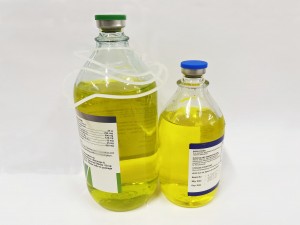Prenatal vitamins have been recommended for pregnant women for decades to ensure they get the nutrients their fetuses need for a healthy nine-month growth period.These vitamins often contain folic acid, which is essential for neurodevelopment, as well as other B vitamins that are difficult to obtain from diet alone.But a recent flurry of reports has cast some doubt on the recommendation that all pregnant women need all other daily vitamins.However, this does not mean that pregnant women should forgo prenatal care.
Now, a new report published in the Bulletin of Drugs and Treatments adds to the confusion.Dr. James Cave and colleagues reviewed available data on the effects of various key nutrients on pregnancy outcomes.The UK Health Service and the US FDA currently recommend folic acid and vitamin D for pregnant women.The scientific evidence supporting that folic acid supplementation prevents neural tube defects is relatively solid, including randomized controlled trials in which women were randomly assigned to add folic acid or not to their diets and tracked the rate of neural tube abnormalities in their children.Studies have found that this supplement can reduce the risk of birth defects by up to 70%.Data on vitamin D are less conclusive, and results are often conflicting about whether vitamin D actually prevents rickets in newborns.

”When we looked at the studies, it was surprising that there was very little good evidence to support what women did,” said Cave, who is also editor-in-chief of the Bulletin on Drugs and Treatment.Beyond folic acid and vitamin D, Cave said there isn’t enough support to advise women to spend money on multivitamins during pregnancy, and most of the belief that women need a healthy pregnancy comes from marketing efforts that lack scientific basis, he said.
“While we say the Western diet is poor, if we look at vitamin deficiencies, it’s hard to prove that people have vitamin deficiencies. Someone needs to say, ‘Hello, wait a minute, let’s open this up.’”We found that the emperor had no clothes; there was not much evidence.”
The lack of scientific support may stem from the fact that it is ethically difficult to conduct research on pregnant women.Expectant mothers have historically been excluded from studies because they fear adverse effects on their developing babies.That’s why most trials are observational studies, either tracking women’s supplement use and the health of their babies after the fact, or tracking women as they make their own decisions about which vitamins to take.
Still, Dr. Scott Sullivan, director of Maternal and Infant Medicine at the Medical University of South Carolina and spokesman for the American College of Obstetricians and Gynecologists (ACOG), disagrees that multivitamins are a complete waste of money.While ACOG doesn’t specifically recommend multivitamins for women, its list of recommendations includes more than just two minimalist lists in the UK.

For example, in the South, Sullivan said, the typical diet has few iron-rich foods, so many pregnant women are anemic.In addition to calcium and vitamins A, B and C, ACOG’s list also includes iron and iodine supplements.
Unlike the British author, Sullivan said he sees no harm in taking multivitamins for pregnant women, as they do contain a range of nutrients.While there may be no solid scientific evidence that they can benefit the fetus, there is also no strong evidence that they can be harmful.Rather than taking several different pills, a multivitamin that contains many nutrients may make it easier for women to take them on a regular basis.”In the U.S. market, additional micronutrients in prenatal vitamins do not significantly increase costs for patients,” he said.In fact, in an informal survey he conducted a few years ago of 42 different prenatal vitamins his patients were taking, he found that more expensive brands were less likely to contain more of the nutrients claimed than cheaper varieties. .

Because there isn’t the same type of high-quality data to support the effects of all the nutrients in a typical multivitamin, Sullivan thinks there’s no harm in taking it as long as you know the research doesn’t provide strong support for their benefits for pregnant women — and the cost isn’t a burden.
Post time: Apr-18-2022




